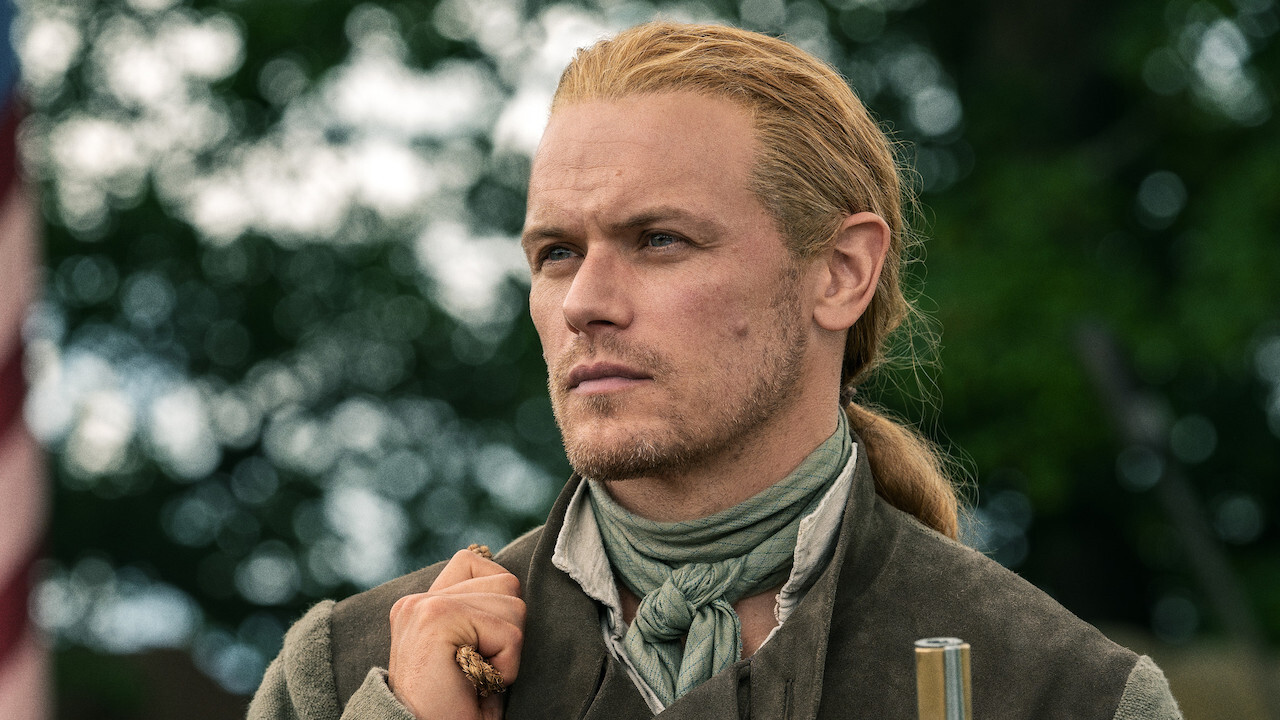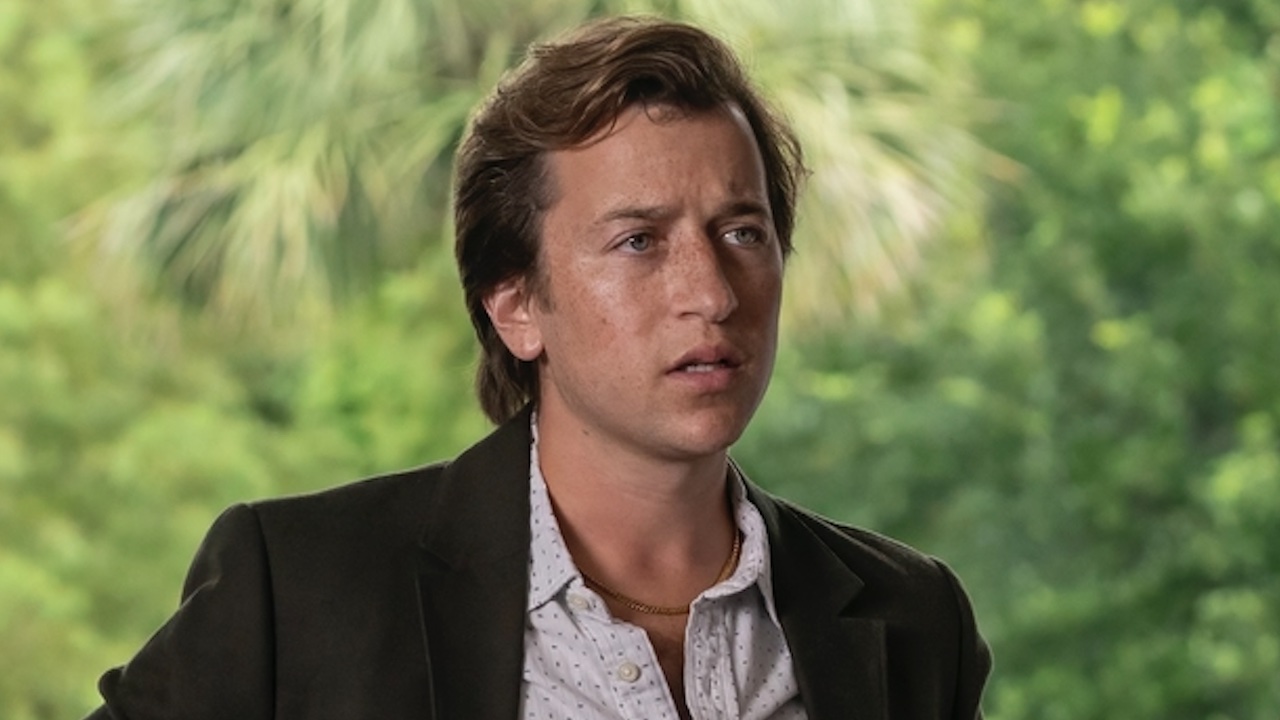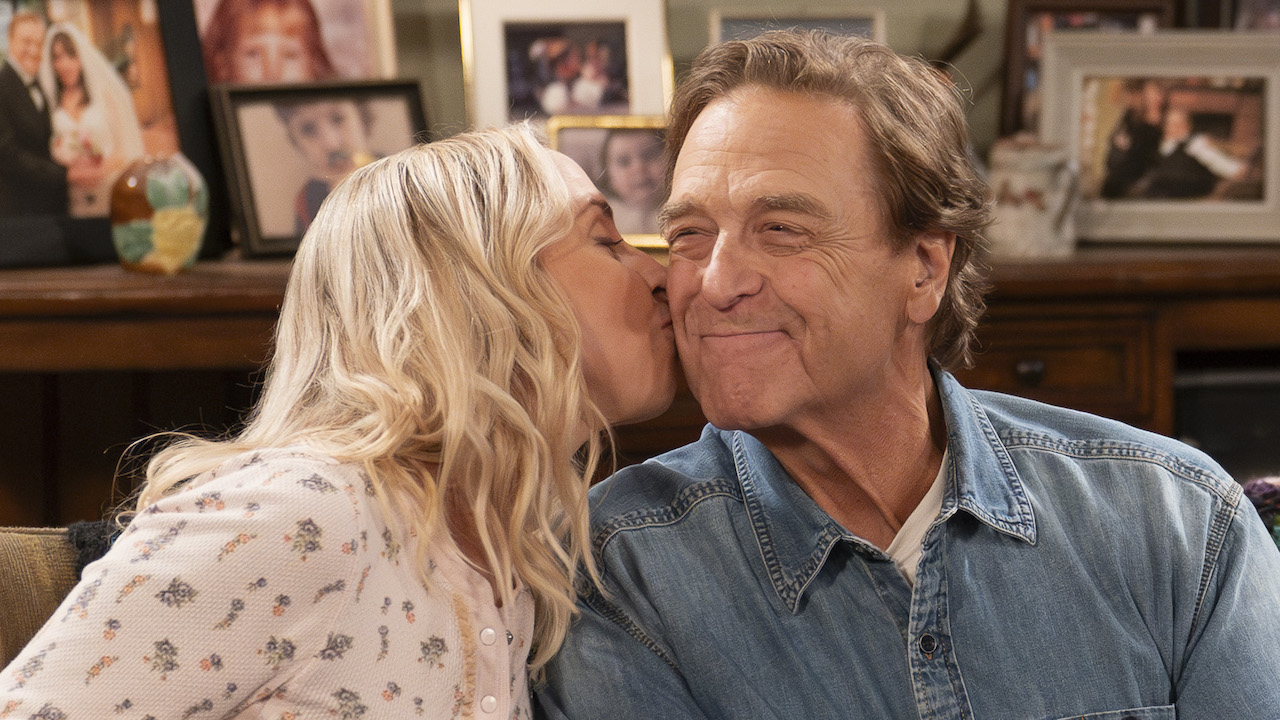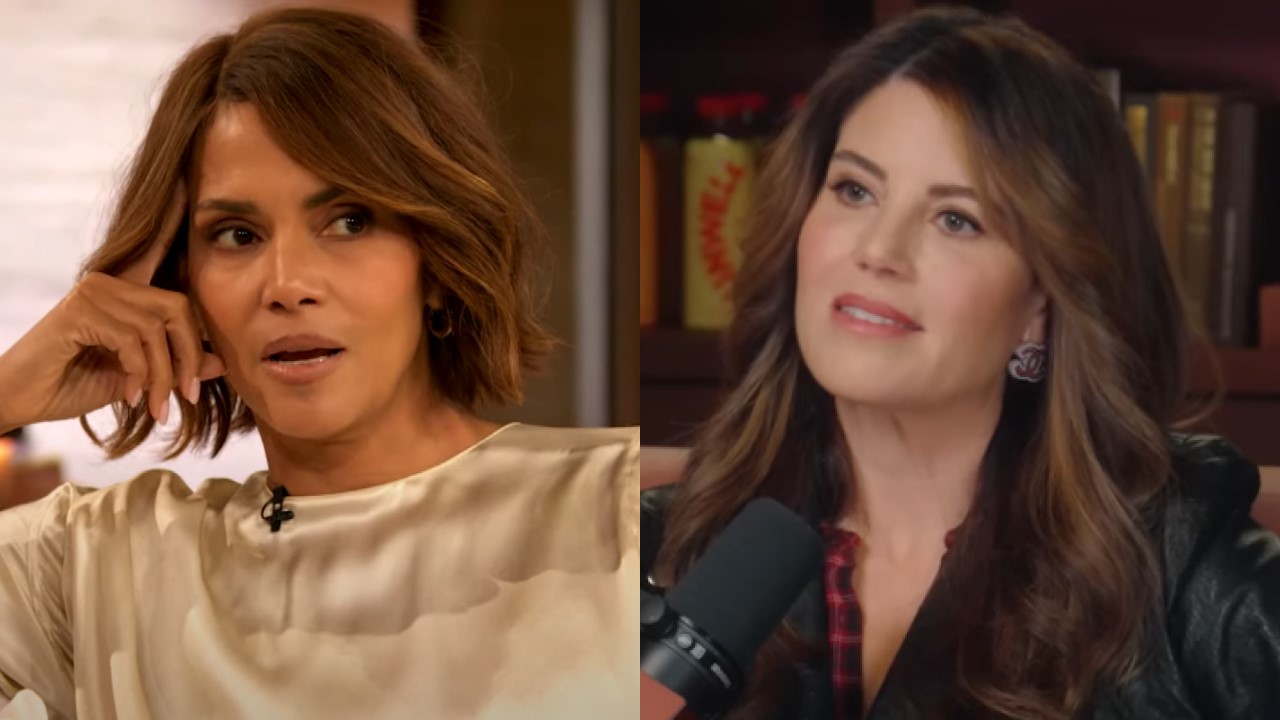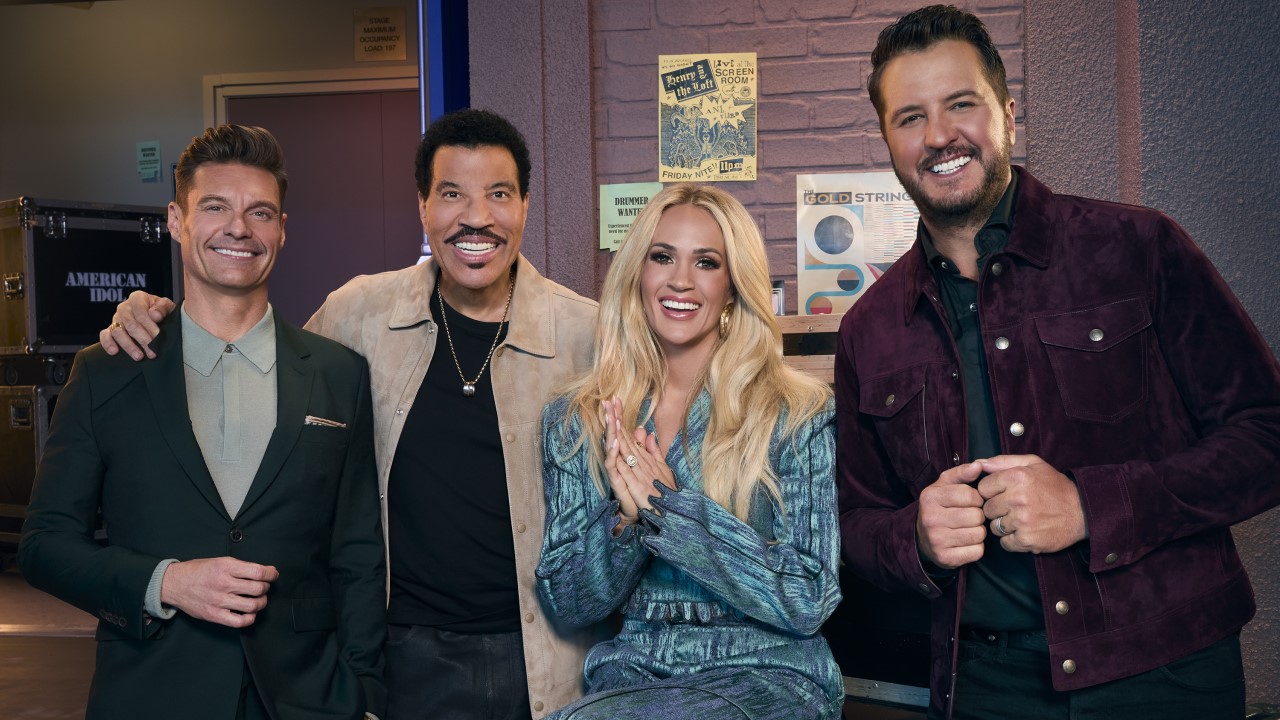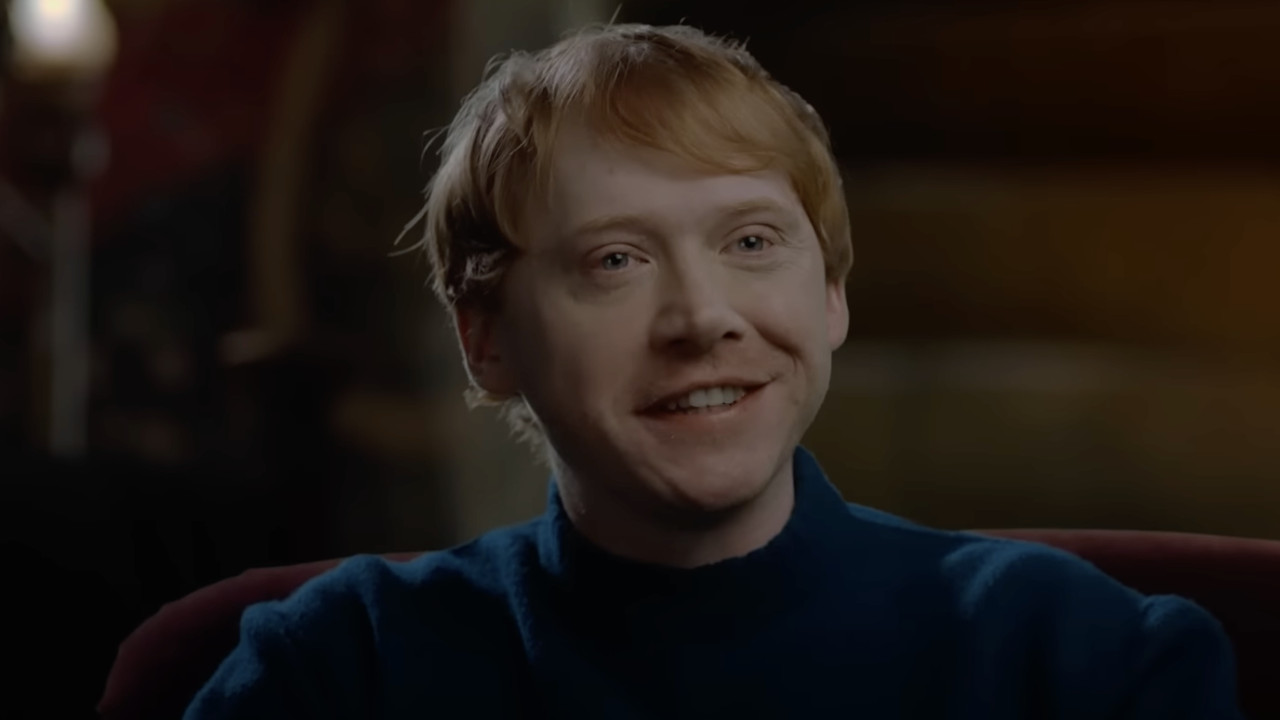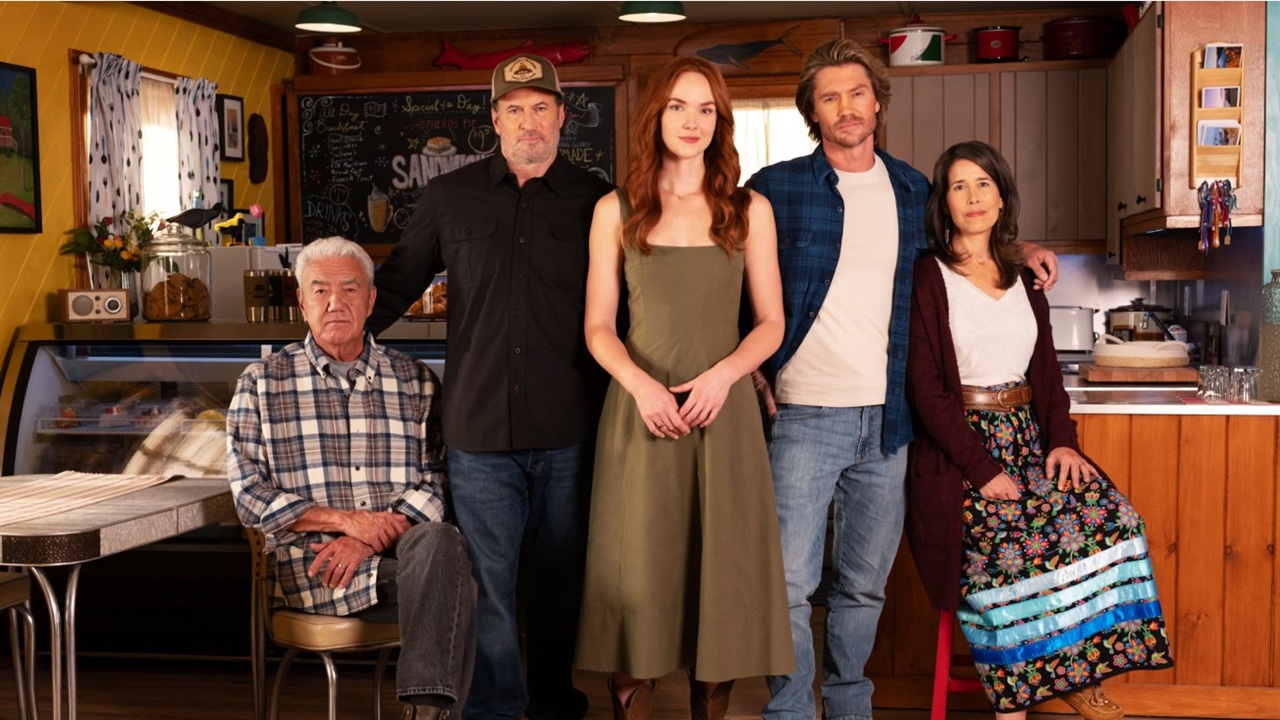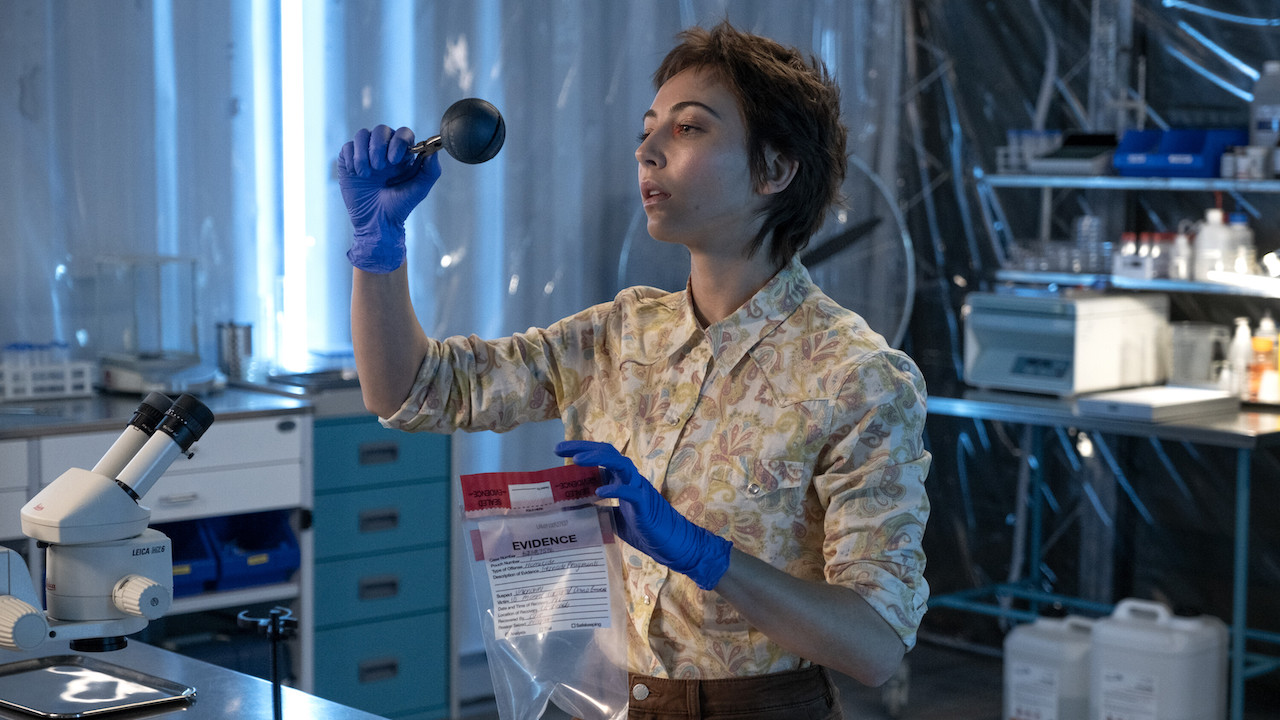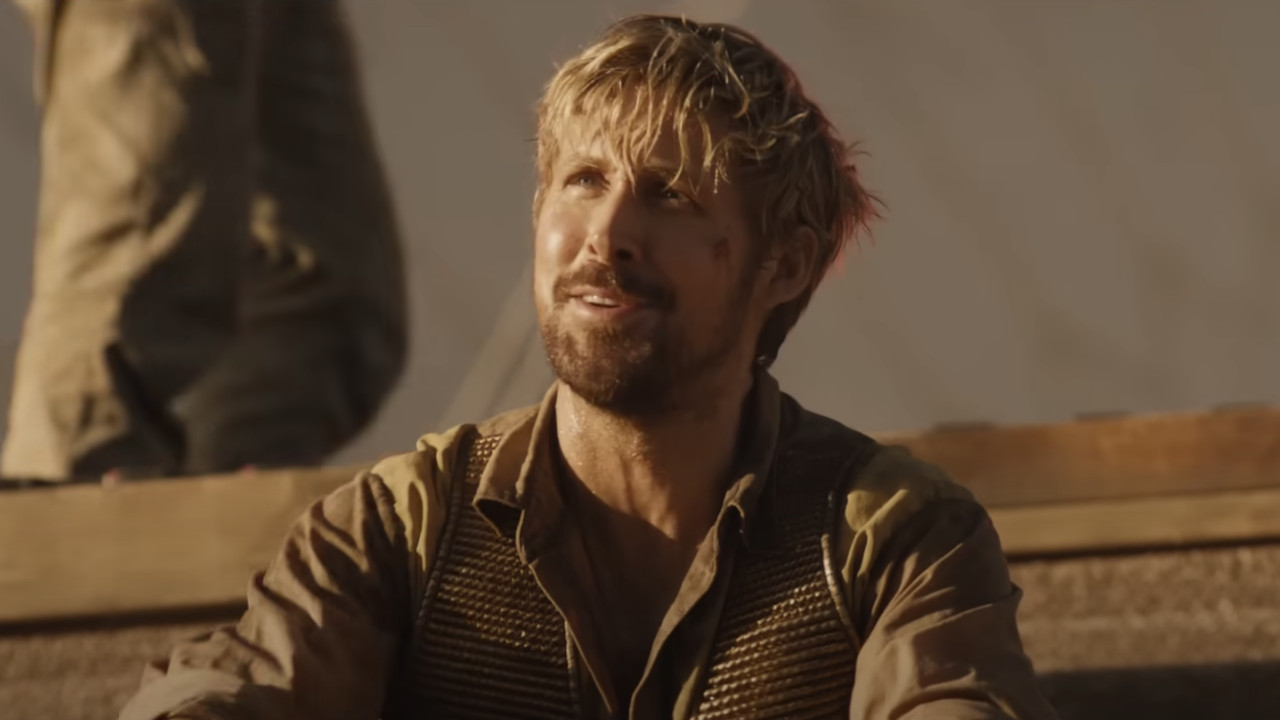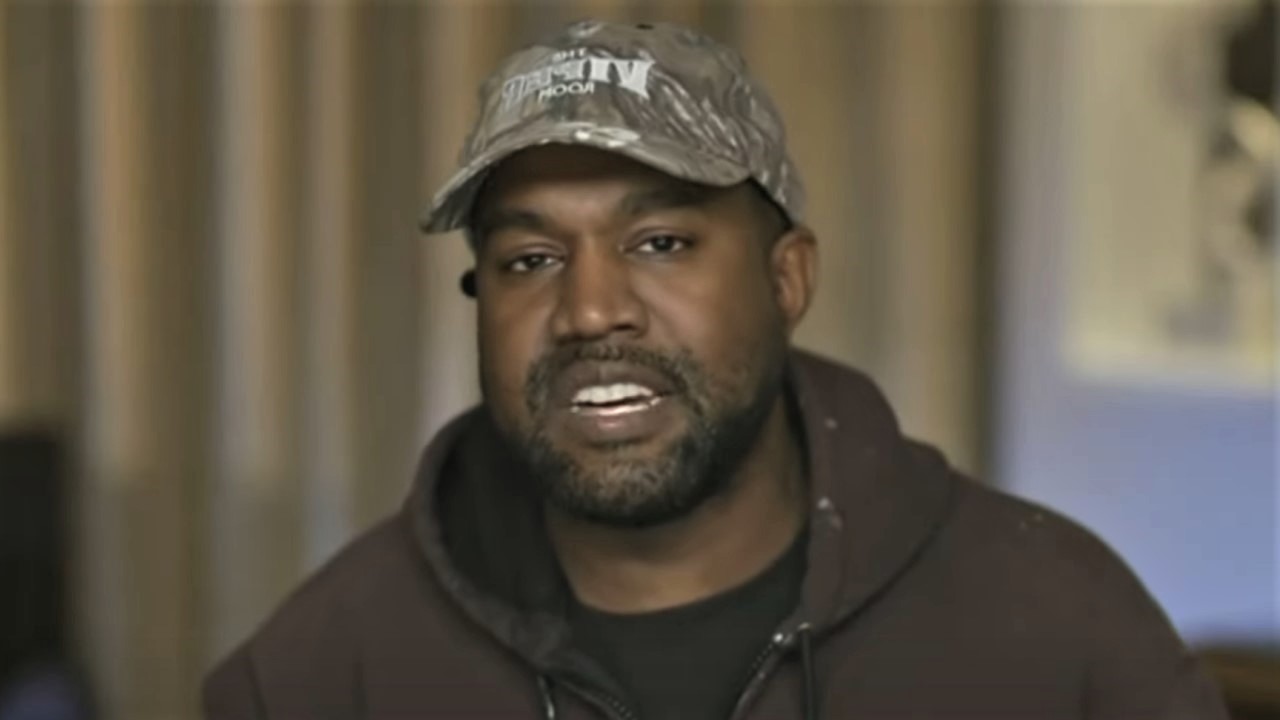The Dilemma Set Visit Interview: Vince Vaughn And Kevin James
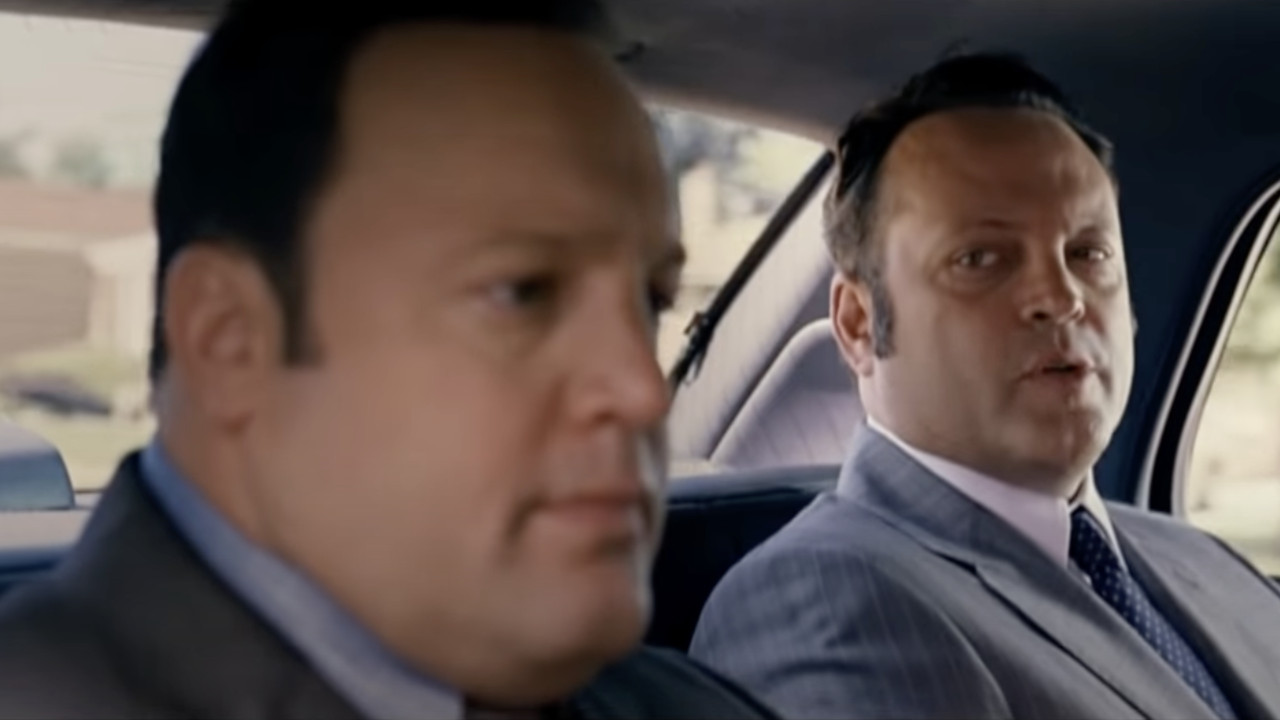
Vince Vaughn and Kevin James are two of the most popular comedic actors working today, but their styles couldn’t be more different. Vaughn, since breaking out in Doug Liman’s Swingers in 1996, has always demonstrated a great knack for snark and a crass attitude. James, on the other hand, after a long career in television, has established himself as a physical comedian in movies like Paul Blart: Mall Cop and Grown Ups. Come January, however, the two will be playing off each other in Ron Howard’s The Dilemma.
After having the pleasure of watching the two on set this past summer in a scene that allowed them to play off each other quite well, the two performers were kind enough to sit down with myself and a group of journalists to discuss their new film. Check out the interview below as both Vaughn and James talk about what it was like to film in Chicago, work with Ron Howard, and the film’s packed cast.
We were just watching a scene and you guys were laughing a little bit. Does that happen a lot?
KJ: Yeah. I'm bad at that.
VV: It happens a lot with us, yeah. It does.
KJ: Once I feel it start to come, too, I feel a sweat start to come on and it's just very hard to pull out and the crew laughs for the first one or two and then they just sort of go, 'Oh, boy.' I was able to pull out enough. I'm just concerned. I don't want to lose it because it was so funny that's what made me laugh in it and I don't want to lose what we got. I'm always concerned that we have a single of Vince and I can be cut out and save that and I can maybe laugh some more.
VV: He makes me laugh. Sometimes that happens when you're doing stuff. What I like about Kevin's stuff, Kevin to me is such a great actor in that the reason why audiences always go so well with him is that he's very honest. He's very genuine. You really connect to him and to me that's very funny. That's always the school of where I came from, that shtick or being cute, okay, but if you really believe from the point of view that it's really happening and you're committed to it, and comedy is a sort of over commitment to the absurd at times, and so the more that you're committed to what your intention is in a real way then to me that's what makes me laugh. So a lot of times when Kevin is really dialed in and finds a way of really getting the point across it really makes me laugh because this movie lends movie lends itself to coming from different perspectives that it's fun.
CINEMABLEND NEWSLETTER
Your Daily Blend of Entertainment News
How quickly did your rhythm kick in together?
KJ: Well, I mean he's the best at what he does. You know that. You see him with [Jon] Favreau. You see him with everybody and he does it. So it was kind of like double-Dutch for me to jump in, for me to go with him. It was seamless though. It honestly was.
VV: But really, I think with improv, and I say it all the time because it's become such a catch thing that you talk about improv, but if the scene is well written you don't need to improv. But that being said, if something strikes you in the moment and most importantly you know where the scene is supposed to go it's no different than method acting. It's just listening so that you can respond appropriately if something happens that you don't expect. But it's important to know where the scene needs to end. If the scene needs to end with me and him no longer friends or upset at each other, it's not about coming up with clever references to say that are just interesting for that's sake. It's really about what's a different way to get to the same end result. Sometimes doing a fresh thing is good because you can get burnt out on the way we all know it.
KJ: That's what happened. We were getting flat on that scene and he came over and said, “Don't worry about the line,” because you just start concentrating on the lines and hitting your points and I end up just staring at him and I'm not in the scene. You can feel yourself. You're out of it. But he just said, “Remember your intent and remember what we're doing here.” Once we went back to that we had a better take, for sure. It felt more alive and then you feel that you're in it again. So that's the only thing that you have to be aware, I guess just getting too comfortable and to numb to a scene sometimes.
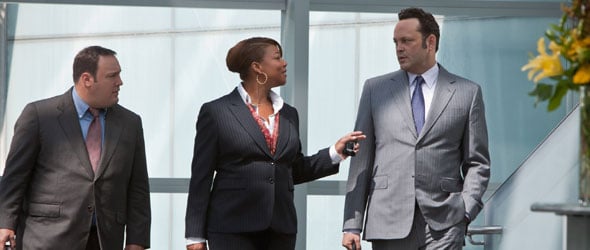
VV: Sometimes you do a free one because it kind of makes it fresh and then you go back to what's written and it's just a way to sort of break it up.
Has Ron Howard really kept you guys in the framework of what you're doing with that?
VV: Ron is really great at that. Ron has a great understanding of comedy and he's very funny with stuff. He does a great job of setting up an environment to go to. The other side of it is that you know the look of the film, and Sal [Totino], they do such a great job that we're getting a lot of coverage with multiple cameras. So we're getting a ton of stuff but we do it very quickly. So for me it's helpful because it's all momentum. The fast you can go you can keep stuff going, that sort of helps it. It's been amazing, that stuff and I've seen stuff that just looks incredible. I think that adds to the comedy, that it's a real world with a real circumstance and it's played very real. It's almost like a look that we had in Swingers –
KJ: Yes. That's the downfall of a lot of comedies to me. It is the look. A lot of times it feels like it's so bright and so built and ready for comedy that it actually hurts the comedy. What Vince was talking about, that it doesn't feel as real and you don't feel as connected to it –
VV: Especially for a tone like this.
KJ: Yes, exactly, especially when it's something that you have to buy into. This is a serious subject but yet it makes it easier because you're in it and you feel the real ebb and flow of the scene. You feel like where the comedy would come naturally and it comes out looking so good when we see the dailies and stuff. So I'm excited. I really am.
It's insinuated that your characters have known each other for a long time, that you work together, your wives are friends, that whole dynamic. Do we get that kind of back story in the film? And had you guys met each other before starting rehearsals together?
VV: Well, we did something a little different where we decided to shower with each other every morning just to get familiar with each other -
KJ: You have to do it anyway.
VV: For the first week. Then the second week was, 'Lets clean each other,' and then that way you really breakdown another wall. And then came the tubs. We take a tub at night.
KJ: Yes.
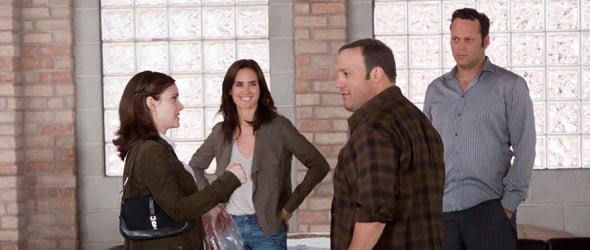
VV: Come over for a tub? Do you want to come over for a tub?
KJ: A lot of water was involved.
VV: It is the back story that they've known each other for a long time. I mean the fun thing, the interesting concept with the movie is that it's not someone you know. It's not someone who's sort of a friend but it's really your closest friend and you find out that the wife is doing things but you've also known her for a while. So what is the appropriate way to break the news or tell the news? Do you go to her first? Do you give her a chance? Do you go to him? So the concept of the movie is do you tell or don't you tell. The concept of the movie is how you navigate it and maintain the friendship. What's the right thing to do preserve the relationship. So that really becomes the journey that the characters go on
And for me, I've known Kevin a little bit. I met him out once or twice but I was always a huge fan of his stuff. I've always handicapped stuff so differently in that I've always approached things so differently. For me Kevin reminded me a lot of one of my favorites which was John Candy. John was very funny but he wasn't trying to be hip but as a result to me he was the hippest of them all. Like he says in Planes and Trains, “I'm the genuine article. What you see is what you get.” I feel that way with Kevin, a guy who's got a real sincerity to him and an honesty and an integrity but at the same time funny as hell and in a way that's connected, that's relatable. He's not trying to be more alternative than now, just being very genuine and real. Over time that stuff always, everyone has their stuff or they campaign for what they like and what reminds them the most of themselves or whatever niche that they like, but as time goes on it's an amazing thing that says as you look back, when you look to pop in the movie the John Hughes movies are kind of some the greatest movies expressed in that time.
It's like a lot of the female screenwriters that I'm close with will cite those movies and those lead female characters as the entire reason that they're writers. But he did it in such a way that was very honest and genuine to what those circumstances were. Not with a bent on how clever or how cool I am. The clever and cool came from just, “My parents aren't recognizing that it's my birthday,” or “My father is a this and that.” So just by being in very real situations. I thought with his show he did that very well. What he did in Hitch, God, your heart just breaks. I thought, “I love this guy. I'm rooting for him.” In Mall Cop the same thing. It's a great kid's movie and a fun thing for little kids to go see and as an adult you laugh and it's funny. He's always had that quality. So I always felt when it came to this thing and to working with Kevin and building that friendship and stuff, I immediately, and I feel like I'm not alone, that there are a lot of people throughout the country who feel it, that when you see him you feel like, “God. I know that guy. I like that guy. I root for that guy.” So it was very easy to sort of establish any repartee with Kevin as far as what's a friendship and what is a history.
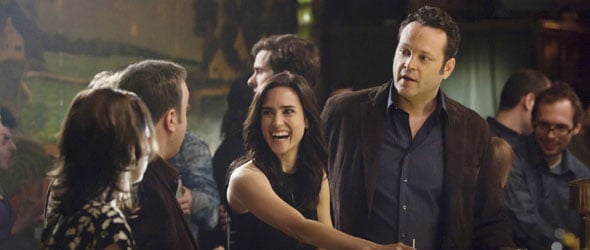
KJ: For me it was one of the same things, like when you look up to somebody. I've met a lot of people that I've looked up to that don't pan out to be the kind of person that you want them to be. That wasn't the case with Vince. He couldn't be a greater guy and it's always nice to have someone you really admire and look up to be such a great guy. Honestly, it sounds like we're just kissing each other's ass but I mean it. Honestly, he took me into this city and his wife is great and our wives get together.
VV: That's how I can tell that I'll like working with him on the set. He's generous with the other actors, what their lines are going to be, 'What's this going to be and what's this?' And usually guys that are really good at it, they come from that place where it's sort of about making sure that you're elevating the people around you. So it was really easy.
Vince, you've shot a lot of films here. I think Ron said it was your idea to do the movie here. Do you get something extra out of doing movies here in Chicago?
KJ: All the hot dogs he wants.
And Kevin, what has he shown you since you've been here?
KJ: First of all, for some reason and I don't know why, but I don't think that I'm funny in California. So I always want to do my movies east somewhere. I've been in Chicago a few times to do press but for a couple of days each time and I've never gotten to experience the city. I've experienced it with him and his family and his friends and you just see that it's really like what John Hughes does it's a slice of life. It's just such great people and it gives you such a great feeling and you want to shoot here and you want to be funny and you really feel like you connect with everybody here. It's an amazing feeling and I'm not excluding California. People can do it. For some reason it's just something in my head that I don't feel as much there. This city has been great. I love it. I don't know what you get for doing it but I'm so happy that you did make the choice to do it here.
VV: For me, I love California. I feel like it's my second home in that I moved out by choice at eighteen. It gave me opportunities that I didn't have anywhere else. I have a lot of close friends out there and a big part of my life is out there. I still have a lot of close friends and feel connected to it. So we did do Swingers in California which is so specific to those neighborhoods. So to me that was really the right place to film Swingers and to do that. I have worked in California recently and I will continue to do stuff there. I mean that honestly. I always say that I was born in Minneapolis and I was raised here in Illinois but I really feel like I grew up in California to a large degree. But for me this is home. So to come here and get a chance to film here means a lot to me. I feel that I'm shaped a lot from coming from this part of the country. I think it has informed who I am to a large degree. I have a family that I'm starting now.
So for me I want to be able to come at night when I'm filming and my priorities have changed in terms of that thing. It's where I want to raise my family. So something about the people from the Midwest, Chicago in particular, I think you know that there's always a real fondness for it and a lot of Chicagoans, not just myself, always like to come back here and shoot and do stuff here. Chicago I think is a real city. There are a lot of real cities but it's a place where people are going to work and they're raising families. I like that energy of the place. It's sort of the focus of the place and so this to me felt like that kind of story, like, 'Okay, these guys can be in the car industry where Detroit is down the road.' They're trying to keep their heads above water and they're trying to figure out these things of life as far as relationships and stuff is concerned. It felt like this would be a good place to do that.
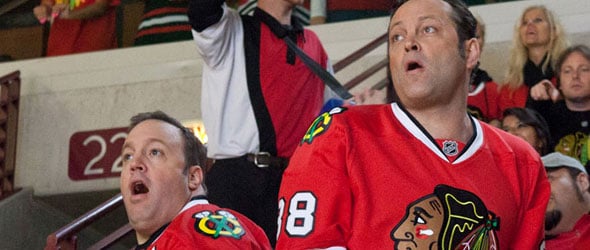
Kevin, you've got such a facility for physical comedy. Do you get to do any of that in this film?
KJ: Yeah, absolutely. There's tons of stuff. That's why I was concerned about going into it. Coming into it I thought, “Do I have to change any of that?” Then Ron brings that out and Vince says to go for things here and there. Again, as long as you remain true it's fine. You can get big in moments if it's warranted and it's great. It's great fun. We've both been able to do a lot of physical stuff. He does crazy physical stuff in this, a lot more than I do. It's great and it all works. It's always dangerous when you're just doing physical bits to do them and it feels like a series of sketches where you're trying to be funny and falling down, this and that. This is not that. That's what I love about it.
VV: Circumstances. It's great stuff. Opportunities.
Can you be more specific about the physical comedy that you've done?
VV: Well, there are conflicts like that, physical conflicts that are played real and there's some extreme stuff that happens.
Do you guys stuff?
VV: I don't want to talk about all the specifics. The thing is that we have a great cast. Queen Latifah is like my new favorite person. I love her. She's just an amazing spirit. Channing Tatum could not be a more genuine kid. He came in and worked really hard and was gracious. He did great. Winona Ryder I think is one of the best actors of my generation and I'm just really thrilled to be working with her, what a great talent she is. Connelly obviously she is as well a great actor. We just have a huge cast and so the fun is like everyday, whoever is coming in is really talented and really good.
KJ: Just delivering.
VV: Delivering. So it's a real ensemble as well. There's a lot of cool personalities and a lot of people that you come to see. I think the fun of the movie is that as much as the dynamic at the core is about this friendship, I think the people that we come into contact with that turn us in a direction or change the way that we think or give us a bad idea about how to go forward in doing something or a good idea are really talented. So for me my job is easy a lot of times because I get to sit back in a scene and sort of take in the information with the audience with these kinds of spectacular characters that were running into that are really specific.
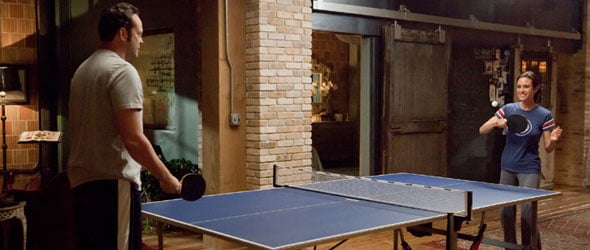
Do you think these are characters that you could've play ten years ago, since you talked about the adult situations and relationships in this?
VV: My approach as an actor has always been the same in that the greatest gift that you're ever going to have is your imagination because you're not going to have all life experiences. So you draw on things that are sort of close to it but you spend your time expanding on it or drawing something specific on whatever your situation is. So, could we have played it? It would've probably felt different, but yeah. That dynamic, I think that people sometimes go through that in high school. What do you do when you know something about the person that your friend is with. I think it probably would've had different lingo and maybe different settings and a different business mode we're running and that kind of stuff, but I think that's what's great. I do think it's kind of a movie that crosses age in that it's a dynamic that is unfortunately or just a matter of fact in life that crosses everything.
Even with Swingers we did that. There were so many wise people who had so much advice for me and Favreau when we were trying to make the movie. One of them was to not make it specific to Los Feliz and Los Angeles and not to have that language be so specific but I think the more you are specific it becomes more universal to different ages and different groups because it feel authentic. So you can translate it into whatever language or however you're speaking or whatever your setting is. I think the same is true here. The more specific that we are to these guys at this stage in their lives the more relatable I think it becomes to younger people as well.
KJ: I agree.
VV: It's such a combustible situation to be in. It's great extremes which leads to great drama and great comedy.
Ron mentioned that during the improv scenes and free takes that he was using that not just to open the comedy but also the more serious aspects of the film. How did you both take to that?
KJ: I think in doing that, in those free takes you just kind of lose it. You feel like you've gotten everything and so you just let go for a take. What can happen is that for comedy it can help because you feel free to do that but then he's right because the dramatic moments are the same thing. The connective tissue between the comedy moments is usually dramatic or something that's very serious. It comes off a little fresher sometimes. That's just a problem of doing a lot of takes and sometimes you can get a little stale and feel a little numb to it at times, be surface with it.
VV: But it puts the danger in it that you have in real life which is, 'I want this in the circumstance, but boy, I'm afraid that this will happen in the circumstance.' There's no planning on where it's going to go. So when you say, 'Okay, just go in there,' and you don't know where the scene is going to end it kind of keeps you more off balance because you're not quite sure what's going to be thrown or said. Sometimes in doing that even just once and then returning back to how it's scripted you created that feeling again of the uncertainty of where it's going to go. But again I think it's best used when it's a good way to try and accomplish what the intention of the scene is and not as something that's just for the sake of doing it.

Eric Eisenberg is the Assistant Managing Editor at CinemaBlend. After graduating Boston University and earning a bachelor’s degree in journalism, he took a part-time job as a staff writer for CinemaBlend, and after six months was offered the opportunity to move to Los Angeles and take on a newly created West Coast Editor position. Over a decade later, he's continuing to advance his interests and expertise. In addition to conducting filmmaker interviews and contributing to the news and feature content of the site, Eric also oversees the Movie Reviews section, writes the the weekend box office report (published Sundays), and is the site's resident Stephen King expert. He has two King-related columns.
I've Always Wondered What It Would Have Been Like If Steve Rogers And Isaiah Bradley Shared A Scene Together In The MCU. Turns Out, Carly Lumbly Has Thought About Talking To Cap, Too
A Ghosts Star Shared His Hopes When It Comes To Ghosts Being 'Sucked Off,' And I'm Right There With Him
